News & Media
Inyathi: Theorising South African Women's Intellectual Legacies
Lively and stimulating discussions about Inyathi Ibuzwa Kwabaphambili: Theorising South African Women’s Intellectual Legacies took place in the Function Hall at Unisa’s Kgorong Building on 7 May 2025.
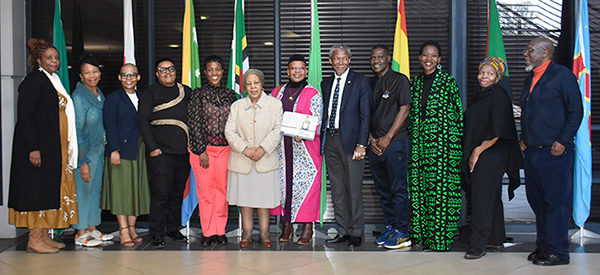
The editors, discussant, facilitator and some of the contributors at the Inyathi book discussion, from left: Prof Grace Khunou (Unisa), Prof Madipoane Masenya (Office of the VC), Dr Viwe Ndayi (Nelson Mandela University), Prof Babalwa Magoqwana (Nelson Mandela University), Prof Edith Phaswana (TM-School), Prof Neo Mathabe (Unisa's Former Pro-Vice-Chancellor), Prof Siphokazi Magadla (Rhodes University), Prof Solomon Magano (Unisa), David Letsoalo (TM-School), Prof Puleng Segalo (Chief Albert Luthuli Research Chair), Dr Makhosazana Xaba (Rhodes University), and Prof Sifiso Ndlovu (Unisa)
The book discussion was organised by the Unisa Department of Leadership and Transformation in collaboration with the Chief Albert Luthuli Research Chair and the Thabo Mbeki African School of Public and International Affairs (TM-School).
Edited by Prof Babalwa Magoqwana (Nelson Mandela University), Prof Siphokazi Magadla (Rhodes University) and Prof Athambile Masola (University of Cape Town), the book emphasises the passing down of knowledge from one generation to the next, and the connection of wisdom and heritage.
Originally published in October 2024 by Mandela University Press, Inyathi Ibuzwa Kwabaphambili uncovers the idea of intergenerational knowledge transfer and the preservation of cultural wisdom.
Journeys of women's leadership and legacies in education
One of the speakers, Prof Puleng Segalo, of the Chief Albert Luthuli Research Chair, also contributed a chapter titled "Pro-Vice-Chancellor Neo Mathabe: Women’s Leadership and The Making of the Post-Apartheid", to honour one of Unisa's first woman Pro-Vice-Chancellors after the university’s merger, which was the integration of Unisa, Technikon SA and VUDEC in 2004. The merged university retained the name Unisa, where Mathabe moved from being a woman vice-chancellor to being the pro-vice-chancellor of the university.
Not only did she speak about the challenges Mathabe faced as a woman leader, but she also pointed out her passion for student support.
In her reflections, Segalo noted the significant issues women face in leadership roles – often about their credibility, authority and success in various settings – which makes it hard for them to perform their duties. Like many women leaders, Mathabe continuously had to prove the legitimacy of her role.
Segalo added: "I share this to say the power, the status quo still remains in many ways today – in a way that it invisibilises her." Segalo also saw the event as an opportunity to honour Mathabe's work and her contribution. Your contributions mattered," she concluded.
Preserving African cultures and legacies
In his welcoming remarks, Prof Solomon Magano, Vice-Principal: Institutional Development at Unisa, congratulated the editors of the Inyathi Ibuzwa Kwabaphambili book, as well as those who contributed chapters, for their hard work.
According to Magano, the chapter contributed by Segalo is an achievement for Unisa, as it captures the history of Unisans and their impactful contributions in higher education. It also highlights the importance of Africa Month, where the contributions of Africans to one of the university's catalytic niche areas, Feminist, Womanist, and Bosadi Theorisations in solidifying African women’s way of knowing, are recorded.
Echoing these sentiments, Prof Grace Khunou, Acting Executive Director of the Department of Leadership and Transformation, said: "It is important to reflect on women’s contributions." She further encouraged African women to start writing and publishing more stories and be a part of this trajectory.
Feminist, Womanist and Bosadi Theorisations
One of the founding directors for the Centre for Women and Gender Studies at Nelson Mandela University, Prof Babalwa Magoqwana, who is also a co-editor of the book, added: "The book is sectioned into three sections." She further noted texts from the book highlighting different genres.
"The book is not only for those in the academic space, as we planned to speak to different publics. Everyone has sort of a stake, whether you are a poet, a singer or a comedian. Hence, we have Thandiswa Mazwai talking to Professor Pumla Qgola (Nelson Mandela University) about the meanings of hope and kwaito as a genre of music."
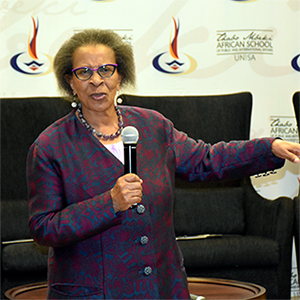
Dr Brigalia Bam, Former Chairperson of the IEC and Inyathi Ibuzwa Kwabaphambili book contributor, sharing experiences as a black woman living abroad
Commenting further on Segalo's chapter, Magoqwana said that it tackles issues of institutional building and leadership. "People question each and every woman leader who stands on the podium seeking to build," she explained. "We question their credibility in leading, but throughout our lives we have been led by our mothers who did not have big budgets," she added.
"We live in a society where people question the person who represents what they know and are familiar with," Magoqwana continued emphasising that the book aims at shaping a different generation of scholars who can continue with the work without making African ways of doing things unfamiliar.
In addition, Prof Siphokazi Magadla of Rhodes University reiterated that Inyathi seeks to claim African heritage – the heritage that requires women's theorisation, and demands serious engagements. "This gives us an opportunity to continue imagining a better world with an inclusive collective heritage," she said.
Dr Brigalia Bam, who has also held several influential leadership positions in the country at large and in the education sector in particular, said that the book is one of Africa's proudest achievements, as it was difficult to find African women scholars back in the day. "This is one of my proudest moments, to see African scholars gathered in one place," she stated.
Furthermore, Bam said that she cannot believe during her lifetime that today there are African women scholars, who are her grandchildren and great grandchildren, while continuing to share her personal stories on the difficulties of finding scholars in Africa. "Today I can look at you with pride and say we have scholars on the continent," she said.
She added: "Do your own writings - and do not separate your stories and voices from African values. We have to find the two together in the process of trying to transform a society that has been there for a long time." Bam urged women African scholars to nurture the younger generation as they are facing strong winds of all kinds, making it humanly impossible for them to cope.
Just before the end of the session, Prof Nthabiseng Motsemme, an Associate Professor at the Sociology Department of the University of Johannesburg, provided a general commentary on the book, serving as a discussant in a panel discussion and posing questions for the panellists to respond to.
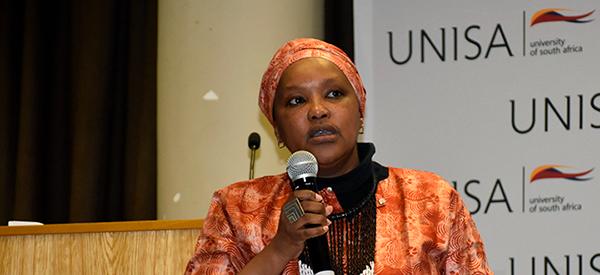
Prof Nthabiseng Motsemme is currently an Associate Professor at the University of Johannesburg, Sociology Department
According to Motsemme: "Each one of us needs to interrogate the intellectual legacies we are drawing from, as we contest, and shape new knowledges centred around women's experiences." She further explained that people should have a very clear and clean consciousness about the ancestral maternal intellectual legacies. "We need to also talk about issues of Umoya and spirituality, which are really at the heart of our intellectual legacies," she said.
In closing, Prof Edith Phaswana gave a special vote of thanks to the writers, editors, organisers and partners for their dedication to and support for the Inyathi Ibuzwa Kwabaphambili book discussion at Unisa.
* By Lesego Chiloane, Marketing and Communications Professional, Unisa Department of Leadership and Transformation
** Photography by Katlego Pilane, College of Human Sciences
Publish date: 2025-05-16 00:00:00.0


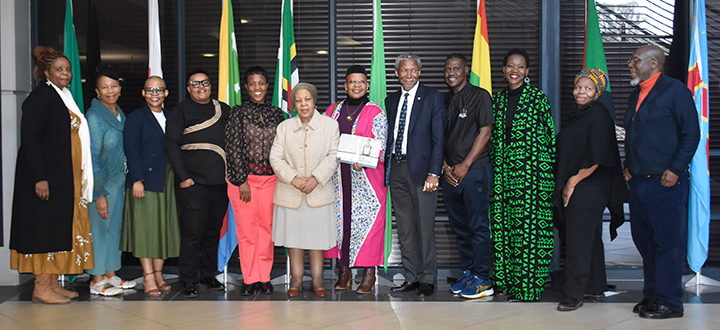 Inyathi: Theorising South African Women's Intellectual Legacies
Inyathi: Theorising South African Women's Intellectual Legacies
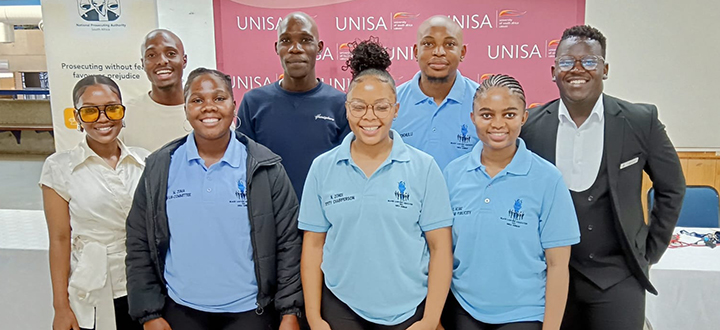 Unisa Law students gain a glimpse behind the scenes of their chosen profession
Unisa Law students gain a glimpse behind the scenes of their chosen profession
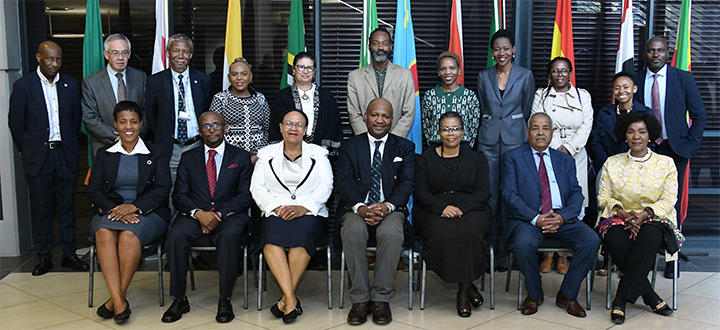 G20 to the people: Unisa and DIRCO launch Town Hall Outreach Programme
G20 to the people: Unisa and DIRCO launch Town Hall Outreach Programme
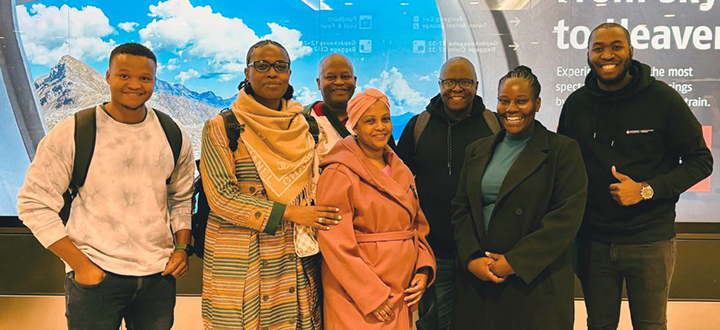 Unisa innovators making global waves in Switzerland
Unisa innovators making global waves in Switzerland
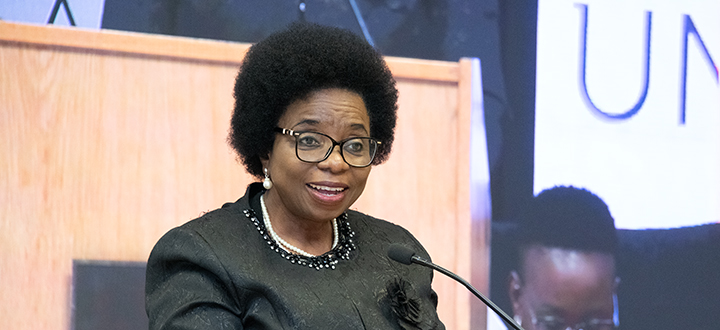 Future-proofing students for the coming digital wave
Future-proofing students for the coming digital wave